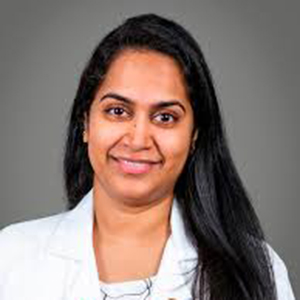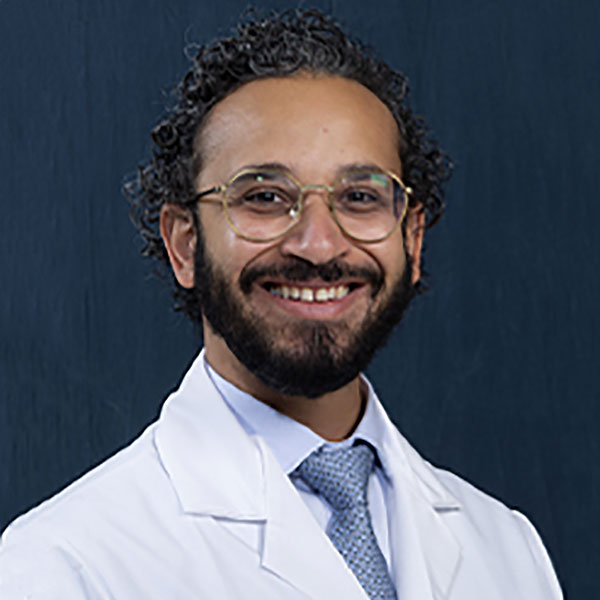FIT Mentor Spotlight: Meera Devi Kondapaneni, MD, FACC

Meera Devi Kondapaneni, MD, FACC, is an associate professor of medicine at Case Western Reserve University (CWRU) in Cleveland, OH, and is the current division director of the Heart and Vascular Department at Metrohealth Medical Center, an academic center of CWRU, as well as a previous program director of the cardiology fellowship at Metrohealth. Kondapaneni is also an interventional and structural cardiologist, a mother and a professionally trained Indian classical dancer (Kuchipudi).
What were your mentors like and what impact did they have on you?
My journey so far has been greatly shaped by the influence of my teachers and mentors. As I reflect, these are some key takeaways I learned from them:
- Creating a positive learning environment: Whether it's my math and biology teachers from my school days or my interventional cardiology mentors, they created a safe and a positive learning environment where mistakes are not penalized, but rather embraced as opportunities for growth. This encouraged me to speak up without anxiety, which created a dialogue that helped my learning and development.
- Beyond subject matter: My mentors' influence extended far beyond imparting subject matter knowledge, and shaped the teacher and mentor in me. I realized from these experiences that the journey of learning for my mentees and learners should not be the mere accumulation of facts and figures, but rather an immersive and enjoyable experience. I sincerely hope I am instilling a passion for learning and continued intellectual growth in those I mentor.
- Zeal towards lifelong learning: One important aspect I inherited from my interactions with mentors is a passionate commitment to lifelong learning. I observed that my most successful mentors and teachers had great enthusiasm towards learning along with us, exploring new horizons and adapting to ever-evolving fields of science.
If you went back in time, what advice would you give yourself as a fellow?
If I were to revisit my fellowship days, I would advise myself to prioritize experiential learning over conventional and passive studying. Reflecting on my journey made me realize that the most transformative growth came from those uncomfortable "lone-wolf" on-call moments, especially during my first year of fellowship tackling a myriad of cardiac emergencies at two hospitals.
The challenging experiences of my first stat echocardiogram, STEMI scrub, navigation of ventricular tachycardia, and the loss of a patient after a prolonged and unexpected code played a profound role in my becoming a confident and composed cardiologist. One of my mentors used to say, "the cardiologist is the calmest person in the room." I would advise my past self to embrace the discomfort, seek guidance from advisors and mentors, and actively debrief after each experience.
What advice would you give fellows and early career professionals who would like to follow in your footsteps someday?
Be open to all possibilities. The envisioned path or dream we meticulously lay out may not unfold in a linear fashion. Every twist and turn in our journey offer unique life experiences. These detours can be valuable additions to our strength and help create a well-rounded version of ourselves.
I pursued academic career, but life circumstances constrained my geographical options and led me to join a community practice; a role I never envisioned for myself. Despite this detour, I seized every teaching and mentoring opportunity that came my way. Surprisingly, the skills I obtained as a community cardiologist, particularly in communication, collaboration and health care economics proved invaluable in the journey to my current role. The unexpected turns in my journey equipped me with a diverse skill set allowing me to contribute meaningfully to academic cardiology.
Are there any courses or topics you highly recommend for FITs?
One life-changing experience I had was the introduction to the concept of personality types. Taking time to understand various personality types not only helps in developing self-awareness but also helps you appreciate the perspective of individuals we communicate and interact with.
As I started learning more about my personality, I started to realize some innate strengths that I possess and gained confidence in who I am. At the same time, this exercise helped me extend that respect to others, especially those with perspectives diametrically opposed to mine. There are numerous books such as "Gifts Differing" by Isabel Briggs-Myers and Peter B. Myers, and "Please Understand Me" by David Keirsey that are good starting points and offer original conceptual insights into this exercise. My exposure to personality types during a leadership course provided a practical framework to apply the knowledge to real-life scenarios using role-play. I have since used these skills routinely for relationship-centered communication, both at work and in my personal life. This awareness of self and the ability to understand others helped me connect with those around me and bring balance to my leadership style, making it more inclusive.

This article was authored by Fares Sukhon, MD, an FIT at Case Western Reserve University/Metrohealth Medical Center in Cleveland, OH.
This content was developed independently from the content developed for ACC.org. This content was not reviewed by the American College of Cardiology (ACC) for medical accuracy and the content is provided on an "as is" basis. Inclusion on ACC.org does not constitute a guarantee or endorsement by the ACC and ACC makes no warranty that the content is accurate, complete or error-free. The content is not a substitute for personalized medical advice and is not intended to be used as the sole basis for making individualized medical or health-related decisions. Statements or opinions expressed in this content reflect the views of the authors and do not reflect the official policy of ACC.

